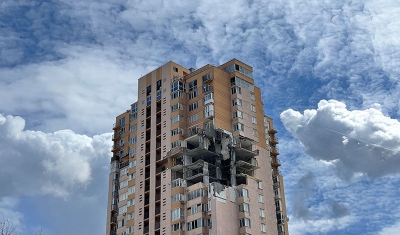Executive Master in International Law in Armed Conflict: What Alumni Say
5 May 2020
Patricia Ötvös is a lawyer with over 15 years of experience as a litigator, legal counsel and human rights advisor who joined our Executive Master in International Law in Armed Conflict back in 2015.
Patricia has expertise in several areas of international law including international humanitarian law, refugee law, and the rights of national minorities. She also has training in international criminal and human rights investigations and is experienced in mission planning, witness and victim interviewing, and human rights monitoring and reporting.
Following her studies at the Geneva Academy, Patricia joined in September 2017 the European Court of Human Rights, where she worked as a case-processing lawyer for a year. She then resumed her job as an advisor to the Commissioner for Human Rights of the Council of Europe, which she has held since 2012. Previously, Patricia worked as a lawyer-linguist at the Court of Justice of the European Union and as a private practice lawyer in Romania.
WHY DID YOU DECIDE TO FOLLOW THIS PROGRAMME?
I already had a good background in public international law and international human rights law and have been working for some years as a human rights advisor. I closely followed developments in various zones affected by armed conflicts, which informed my work related to the rights of refugees and internally displaced persons, as well as transitional justice. I was strongly motivated to acquire expertise in IHL, which I felt would best complement my credentials and work experience. My preference was for a part-time programme tailored for professionals, so I was excited to find this executive master.
DID IT RESPOND TO YOUR EXPECTATIONS?
When I was admitted I already looked forward to receiving high-quality teaching and to exchanging views with fellow students, who I expected to have a wealth of experience in various international organizations or NGOs involved in human rights and humanitarian affairs.
The programme went beyond my expectations on both points. There was a specific interplay between the various subjects included in the syllabus, which became very tangible as the courses unfolded. This structure was fascinating and it was one of the main strengths of the programme. Another strength was the setting, which allowed for in-depth discussion and analysis of topics and cases. We also had access to excellent libraries and conferences – I still come back to Geneva from time to time to attend events organized by the Geneva Academy.
WHAT DID IT BRING TO YOUR CAREER?
The programme was an eye-opener regarding the various layers of rules applicable to facts occurring in armed conflict. Following the programme, I have been able to provide advice on situations concerning persons affected by armed conflicts and the knowledge acquired at the Geneva Academy put my work in a different perspective. I benefitted from this fresh outlook both as a lawyer at the European Court of Human Rights and as a human rights advisor.
WOULD YOU RECOMMEND IT?
I would recommend this programme in particular to young and mid-career professionals who seek to update their knowledge in international law and better integrate IHL in their work. I think it would best benefit lawyers and other specialists with some experience in human rights and humanitarian affairs. However, I can also see it as a valuable programme for other professionals working in areas affected by conflict or who wish to be involved in the humanitarian field in the future.









